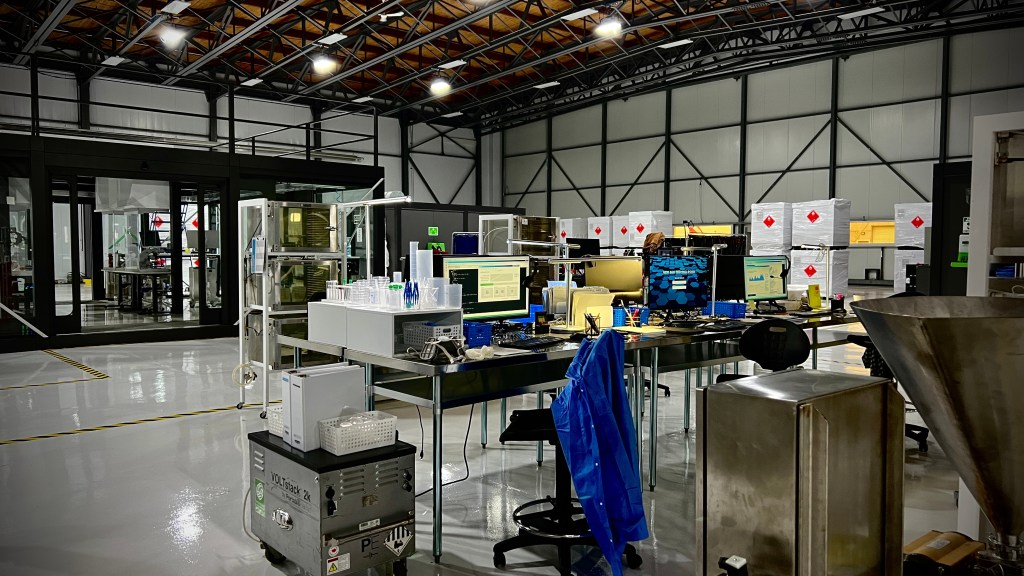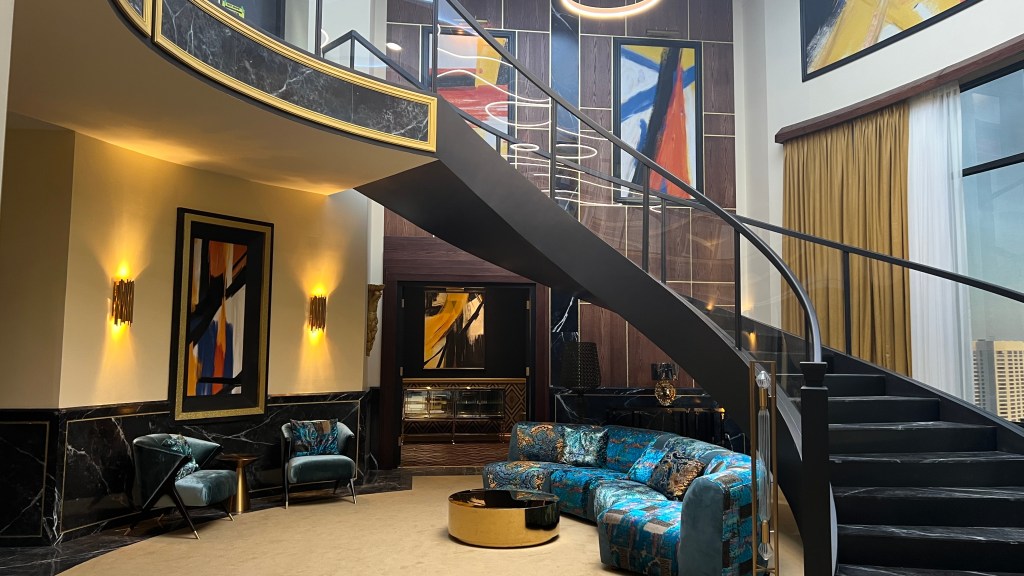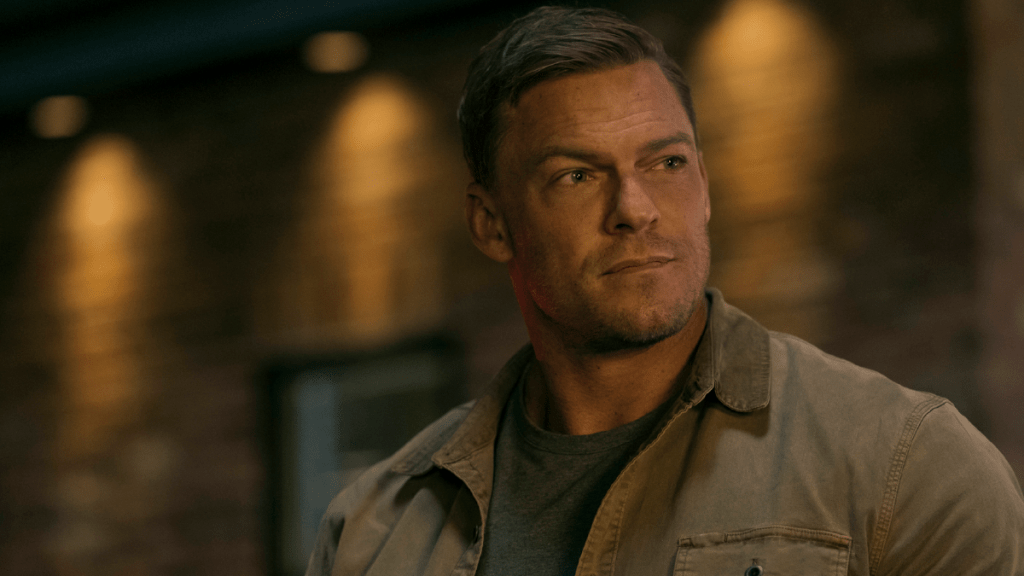ComingSoon recently spoke with Reacher production designer Naz Goshtasbpour about her work on the acclaimed series. Check out the interview below to hear her thoughts on practical effects versus CGI and how she handled the challenges of the show’s numerous action sequences and stunts.
In Season 2, Reacher is contacted by a former member of his defunct MP unit from New York City when one of their own is murdered under mysterious circumstances. He reassembles his old team to find the murderers and avenge their friend. The series is currently streaming on Amazon.
ComingSoon: The decision to prioritize practical effects over CGI is intriguing. Can you elaborate on the creative advantages and challenges you encountered by opting for a more hands-on approach to production design?
Naz Goshtasbpour: When it comes to weighing the advantages vs. challenges, we always think about safety of cast and crew above all, then work out how the action can be achieved within the time we have during prep and on the shoot day along with other variables if done practically vs. CGI. It’s all on a case-by-case basis. But for me, most of the time, the effects look much better when done practically as opposed to with CGI, so I always push for that.

Building elaborate life-size sets amidst last-minute changes and unpredictable weather requires flexibility. How did you maintain the integrity of your designs while adapting to these challenges?
There’s never a dull moment in film/TV production, especially in production design. I love what I do and never want to put something on camera that I’m not 100% happy with. I started in the industry as an art department trainee and on the side, I was designing small independent movies with very tight budgets. I applied what I learned as a trainee and an assistant art director to my production design work on indie movies, such as being resourceful, thinking outside of the box, and being able to pivot when last-minute changes come up. I think that’s an advantage I have over most; because of my background, I see everything as an opportunity rather than an impossible task. Finally, I’m thankful to be working with such a wonderful team of magicians who can pull off anything!
Nick Santora’s vision as a showrunner and writer is crucial to the series. How did you collaborate with him to ensure that the production design seamlessly complemented the narrative and overall tone of Reacher Season 2?
My approach to production design on any project is to always keep the design rooted in realism. The Reacher aesthetic is very much like that, so it was a smooth start. For season two, I read the book and the scripts prior to filming, so I had a pretty good idea of how the season should look. Nick Santora is one of the most amazing showrunners I’ve had the privilege of working with. I pitched my ideas, and they were in line with what he envisioned. The rest is history.

Can you share a specific instance where your creativity was tested due to limited resources and how you overcame those constraints to deliver a visually compelling set?
My creativity is always put to the test, regardless of whether it’s a massive series or an independent movie. That’s another reason I love production design. I can think of an instance when I production designed a small comedy project I did ages ago. There was a scene written in a small cabin of the sinking Titanic. The show didn’t have the budget to build a set that could be flooded in a studio or a pool, so I suggested we build it in the back of a cube truck we owned and park it on a slight angle in an empty parking lot. We added rain wands on the ceiling and behind the walls, built a dam, and sealed the floor to let the water rise just enough to give the impression that the ship was underwater. It worked beautifully and was within the budget for the scene.
The emphasis on stunt work in Reacher Season 2 adds an extra layer of complexity to the production. How did you design sets to accommodate both the visual appeal and safety considerations for the cast and crew during intense action sequences?
We take the safety of our cast and crew very seriously on Reacher and it always trumps everything else. With sets that have any stunt sequences in them, I always involve the stunt team early in the process. On this show, we have an amazing Stunt team: Buster Reeves and Alex Barron. They are wonderful to work with. After the design is discussed with the director and showrunner, I go over the plans with Alex and Buster to see what they need. For example, the helicopter was a big set for stunts, so they were involved from the early stages. I wanted to make sure we built the set in such a way that if they needed to rig anything to the inside of the helicopter, they could or if we could incorporate anything in the design to help them. We also made the quilted panels thicker than usual to help with the fight sequences.

With the industry’s increasing reliance on CGI, what inspired your commitment to practical effects, and what do you believe this choice brings to the viewing experience that might be lacking in a more digitally dominated approach?
It’s always about finding the balance. CGI is great for set extensions, enhancing practical effects, or if the action is dangerous – then CGI is the best, safest, and sometimes the only option. When it comes to performance, practical effects give the actors something real to interact with and react to and that allows for more authentic reactions and a better audience experience. In instances when we can’t build the entire set, we build the space the actors stand on and interact with and provide the design along with the 3D models to our VFX friends.
How did the production of Reacher differ from your other projects?
The core principle of how I approach any project is the same as how I approached Reacher. I did a lot of research to make sure all the details were as authentic as they could be and true to the book. We also had a military advisor to consult with. The main difference was that this is the highest-profile series I’ve done, and when I go out anywhere, it’s exciting to overhear strangers talking about the show.
Any upcoming projects?
I did a movie with Alan Ritchson prior to getting Reacher Season 2. It’s called Ordinary Angels. It’s based on a true story set in the ‘90s. It is coming out in February, so I’m looking forward to watching it in theaters. There’s also Reacher Season 3. All I can say is that each season is getting bigger and better, and I’m grateful to have been given the opportunity to design the series.










